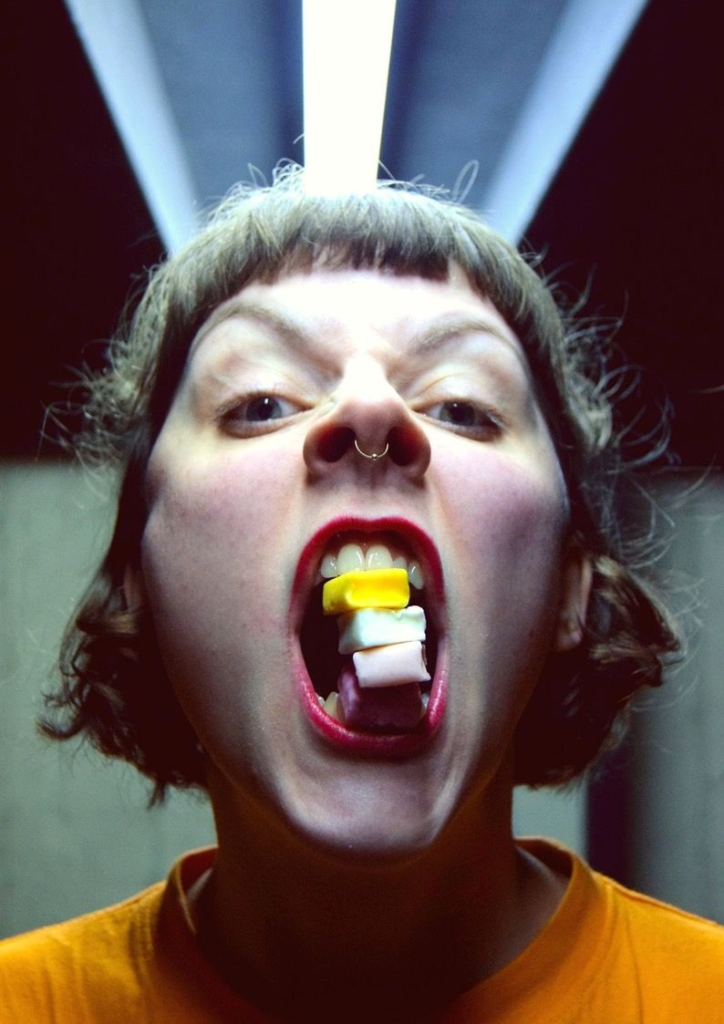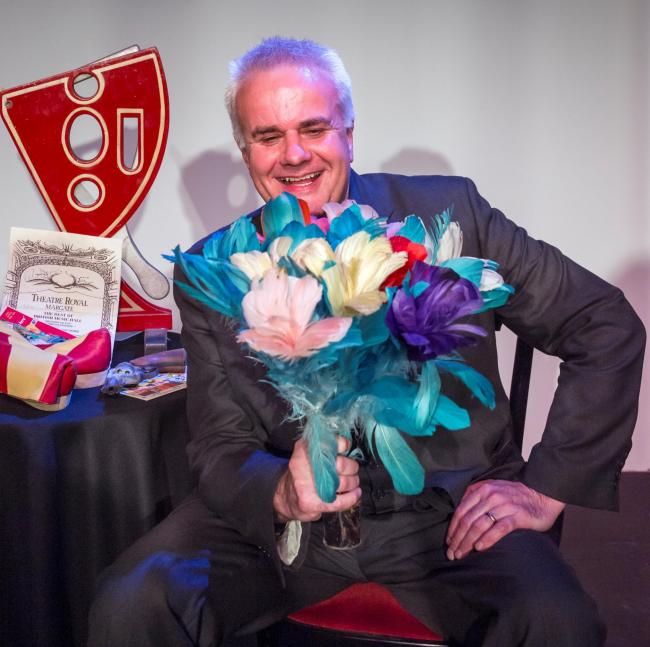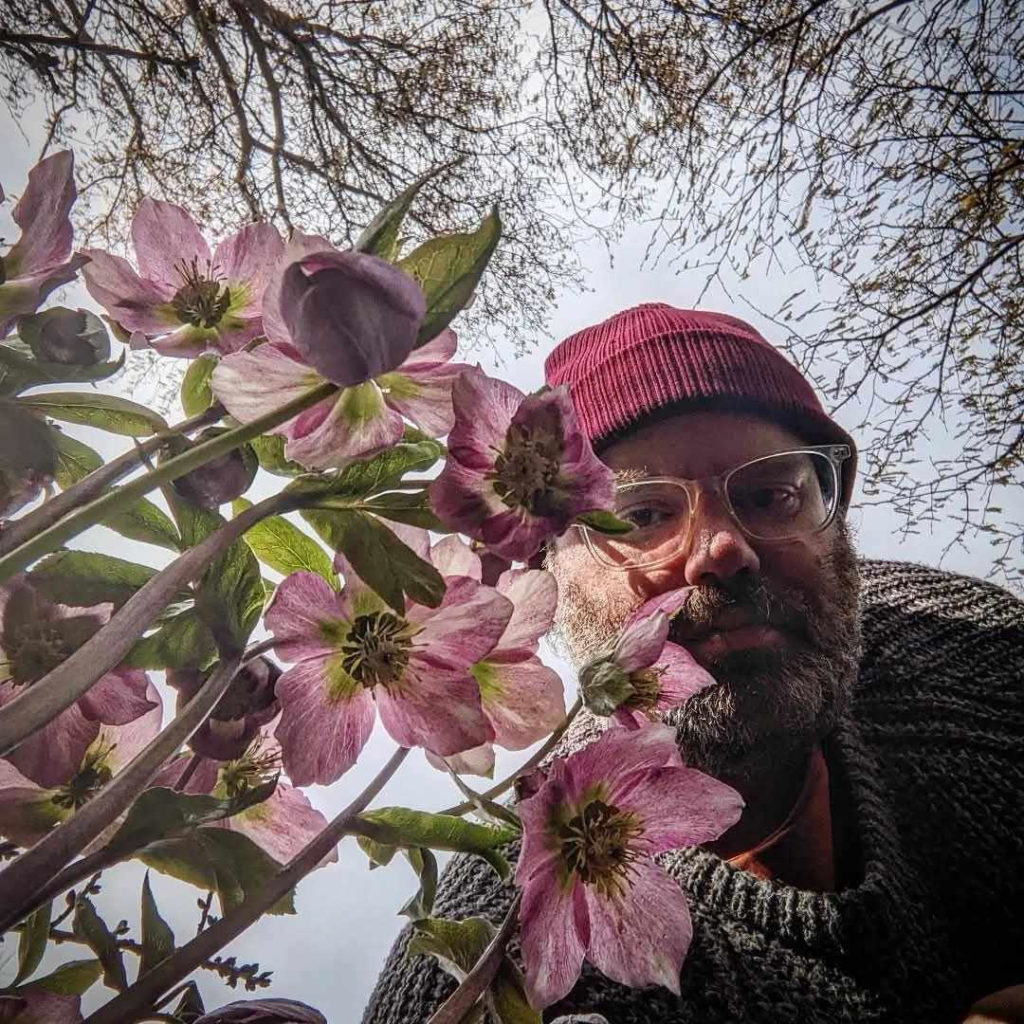
AL Greaves, promoter of the Burning Duck Comedy Club for 11 years in York and Leeds, has died at the age of 47.
The tragic news broke on The Crescent community venue website on Tuesday, when promoter Joe Coates posted: “Last week we learned of the passing of our friend and colleague Alistair Greaves, who left us suddenly on Wednesday 8th January.
“Many will know Al as the brains behind York-based independent comedy producers Burning Duck Comedy. With a genuine love for an oddball sense of humour, Al brought a widely eclectic programme of artists to York and Leeds over an 11-year period, from its initial home in the upstairs room of The Black Swan Inn, to The Basement in the City Screen Picturehouse before finding more permanent regular homes here at The Crescent and Theatre@41 on Monkgate.”
Paying tribute, Joe wrote: “Al was a brilliant promoter, open-minded and art focused. Working on his events would often involve long conversations about a new sound on his synthesizer, the layout of his allotment, a fab new vegan restaurant in town, or highly enthusiastic (and often very silly!) new ideas for hosting live comedy.
“Al was also keenly engaged in politics. He was a member of the Labour Party and more recently the Green Party with whom Al helped with fundraising and canvassing. He was considered and principled, but above all loved to engage in conversation with others, a beautiful humanist. We will all miss him very much. Our thoughts are with his friends and family.”
Never afraid to employ ukulele, looping pedals, props or whimsy, Middlesbrough-born Al first performed in London, where he established and compered Comedy Lake, the capital city’s number one underwater-themed comedy night in Archway, complete with resident shark, presenting the likes of Josh Widdecome and Sara Pascoe.
After returning north for family reasons, he set up the Burning Duck Comedy Club as “York’s most thought-provoking alternative comedy night: a handcrafted artisanal smorgasbang of the weirdest, wisest and most wonderful experimental musical, character, sketch, spoken-word and stand-up comedy performers”.
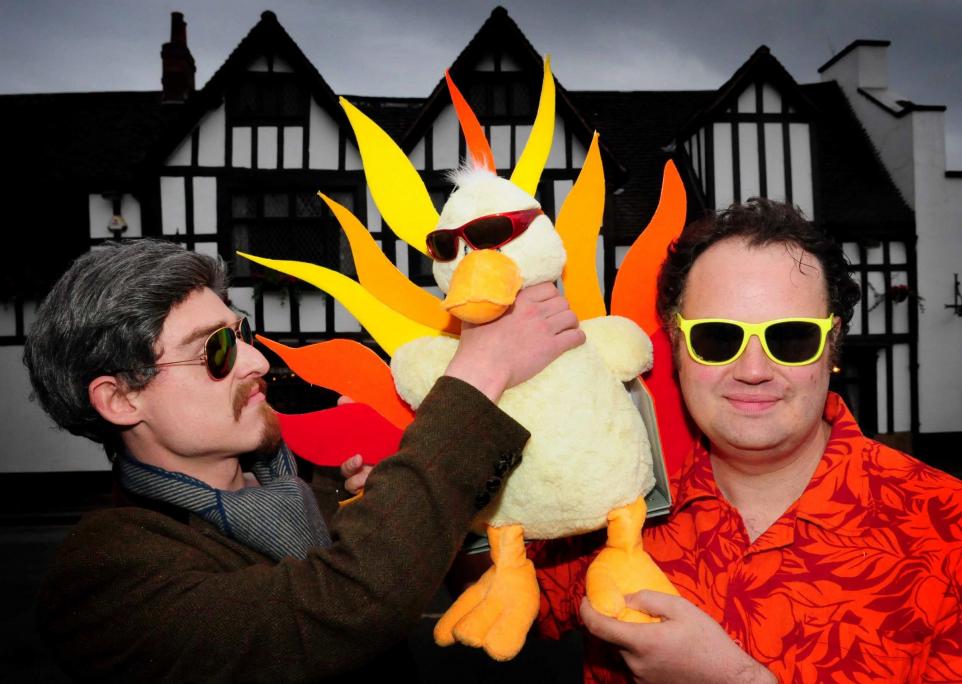
He staged his first gig at the Black Swan in October 2014 with a bill of Seymour Mace, Tom Taylor, Nicola Mantalios-Lovett, York’s Peet Sutton as Sir Dickie Benson and compere Jack Gardner.
Already Al had won Beat The Gong at ARC, Stockton on Tees, performed in several shows at the Edinburgh Fringe, including Alistair Greaves Mixed Grill in 2011, and taken up the post of resident master of ceremonies at Verve Comedy Cellar in Leeds.
He went on to establish the Woodsduck Comedy Festival in 2015, participate regularly in the Great Yorkshire Fringe in York, move Burning Duck to The Basement, The Crescent and most recently, Theatre@41, since August 2022, and promote Burning Duck at the Hyde Park Book Club, Headingley, Leeds too.
“I don’t think it’s overstating it to say Al transformed our comedy offering at Theatre@41,” said chair Alan Park. “Starting back after Covid, we’d been approached by comedy agents directly and done a couple of comedy shows a season but they hadn’t done well and we thought, ‘is comedy for us?’.
“But then Maggie Smales, one of our trustees, reached out to Al,” said Alan. “We said, ‘we don’t want to tread on your toes, but we’d love to work with you’.” Al put six shows in place for the autumn season and comedy has become a mainstay of the programming.
“Al had this encyclopaedic knowledge of comedians with the ability of a dark art to identify comedians that would suit a 100-seat venue. He understood us as a venue and had a great sense of what would play well here.
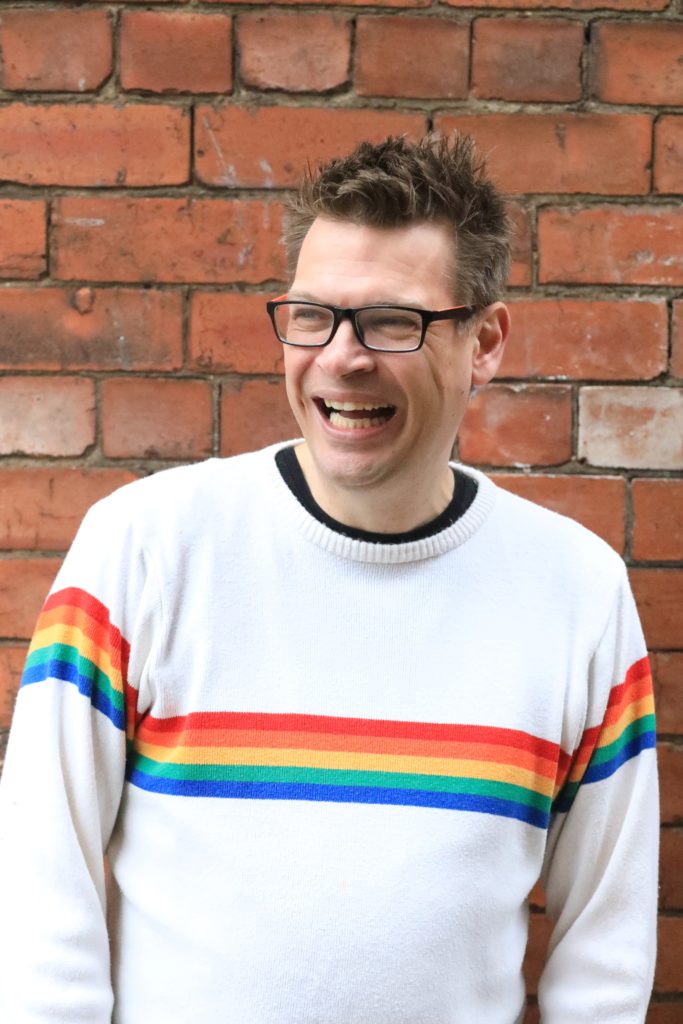
“He also understood the life of a comedian, how they go from show to show with a suitcase and maybe arrive after a bus replaces a cancelled train. He would always arrive early, make them feel welcome and would chat with them when they probably hadn’t had an adult conversation all day – and he was always very supportive of support acts too.
“He will go down as the man who revolutionised our comedy offering. People would come up and say they didn’t know this place existed until they came to a Burning Duck show and so we shall forever be in debt to him. I can confirm that we’ll be going ahead with all the shows he had put in place for us this year. Al had built up Burning Duck here and we don’t want to see it crumble.”
Alan added: “Al wasn’t doing it for anything but his love of comedy. It wasn’t for commercial gain. He just loved presenting comedy. There was no ego and he was just a joy to work with him. It was always a collaboration with him.
“He’d sit on a step or in the corner at Theatre@41, and you’d hear him laughing at a gag that no-one else got. He had this very alternative sense of humour and was such a great student of comedy. Every comedy agent we’ve spoken to has been devastated by his death because he really knew his comedy. I think he’s irreplaceable.”
Al’s humour might be best described as oddball. For example, he created the character comedy act Peter Bread, a York tour guide and baker, pioneer of York’s first ever Toast Walk, a tour that “bypassed York’s boring supernatural history, instead concentrating on telling the history of the city through baking” in another way to raise a laugh.
And should you be wondering why Burning Duck is so named, here is Al’s explanation. “It’s inspired by a joke I heard which I thought was amusing,” he said. “Why do elephants have flat feet? For stamping out Burning Ducks! I liked the randomness of the punchline and thought that anybody with a similar sense of humour might enjoy my nights.

“Although about a year later I discovered that there was an earlier bit to the joke which was, ‘Why do ducks have flat feet? For stamping out fires’, which adds the context I missed when I heard the joke for the first time.”
Barmby Moor comedian Rob Auton typifies the comedy circuit’s affection for Al, first appearing on a Burning Duck bill in 2015. “I am gutted about the passing of Al. As a promoter he was a constant positive in every show I’ve ever done in York and Leeds.
“He cared about the acts and the people who came to the shows. I took home many an apple and chocolate bar from the supermarket spread he could be bothered to buy and put on a table. I think he really wanted to make things feel proper.”
Fellow York and Leeds comedy promoter Toby Clouston Jones, of the Hyena Lounge Comedy Club, said: “In an industry infested with sharks, narcissists and psychopaths, Al Greaves was that incredibly rare breed – a really nice bloke.
“He loved both comedy and comedians; the stranger the better was his cup of tea. Yet he seemed his most happiest when discussing his allotment and the pleasure it brought to him. The world needs more Al Greaves, not less.”
Martin Witts, who ran the Great Yorkshire Fringe in York from 2015 to 2019, spoke of Al’s involvement with the festival. “He started with us in 2016, initially as an intern, then worked at the middle tent, and he always delivered. Over the last two Fringes, we did more with Burning Duck and it was lovely to be able to pass acts on to him.
“I was very fond of him. As I got to know him, I realised what he was about was concentrating on getting his comedy nights right. We were choosy about who we worked with, but Al was a great addition as he knew there were different shades to comedy.
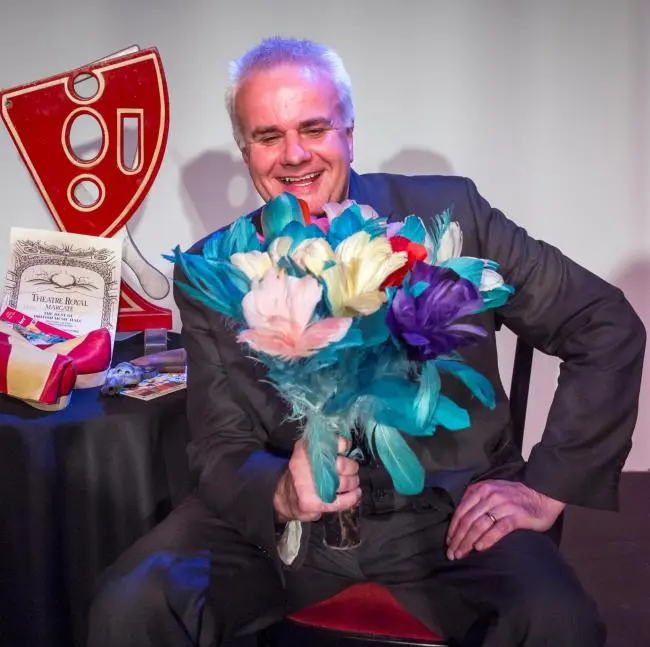
“What makes a good comedy promoter is being in the game a certain amount of time because acts then trust you and return to you, and Al’s promotions were always good. He was just at the point where I would have loved to have seen him open his own comedy club in York.”
Al was more than a comedy promoter. His Alistair David Greaves Instagram site profiled him as #live music/comedy productions and vegan salads; #RHSLevel3 Horticulture and #secretbedroomfolktronica, with a link to alsallotment.wordpress.com, where could be found a profusion of images from his allotment and myriad vegan platters.
What made Al laugh? “It’s difficult to define, but there’s something satisfying about watching comedy that feels ‘truthful’, even when it’s also palpably absurd,” he said in a 2015 interview.
What did not make him laugh? “I try to be open minded and not too prescriptive about the type of comedy I enjoy, though personally I get turned off by comedy which feels ‘contrived’ or is overly predicated on perpetuating lazy and inaccurate stereotypes. Or when comedians pretend to get angry about things that aren’t actually that bad and overcompensate for lazy writing by shouting.
“Comedians will always elaborate on the truth to try and make a story funnier, or shoehorn in a clever pun, but I think the comedy still has to be somehow ‘believable’.” How astute he was.
Al had set out in 2014 to “create an environment in which performers feel they have more freedom to take risks and adopt a more experimental approach in their act, while also trying to foster a local audience who want to watch that sort of thing”.
He achieved those goals, savouring how “one of the highlights of live comedy is that it’s one of the few mediums where magical things can take place that seem relevant and funny only in that moment”. Thank you, Al, for conjuring such a profusion of magical things.
A memorial wake for Al Greaves will be held at The Crescent, York, on February 18. “For friends of Al’s we’ll be gathering to celebrate the life of a real good egg,” says promoter Joe Coates.


